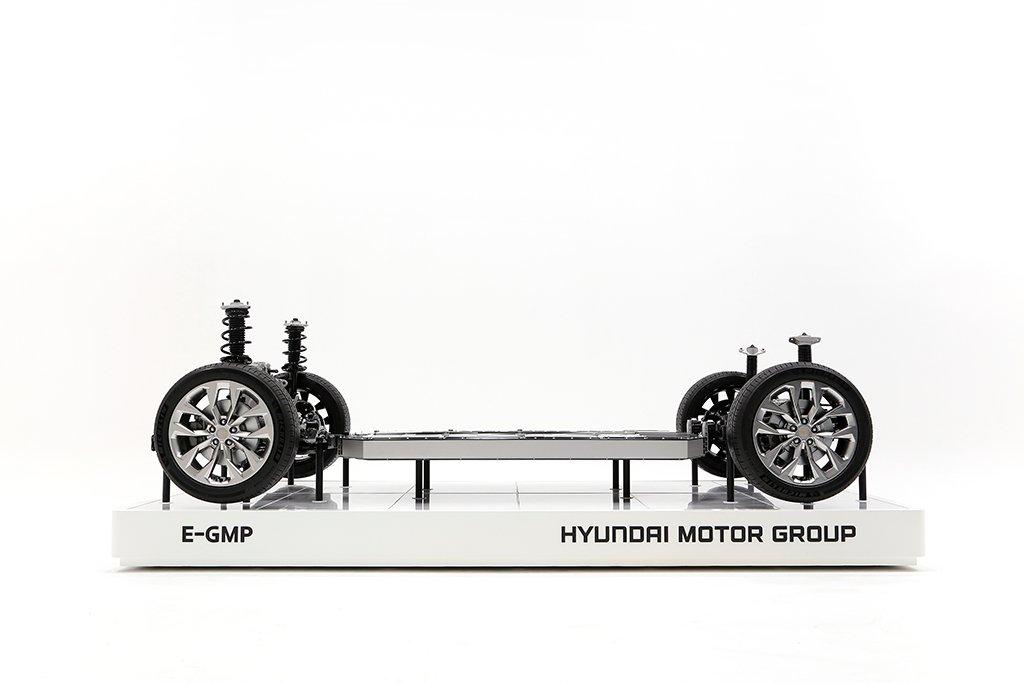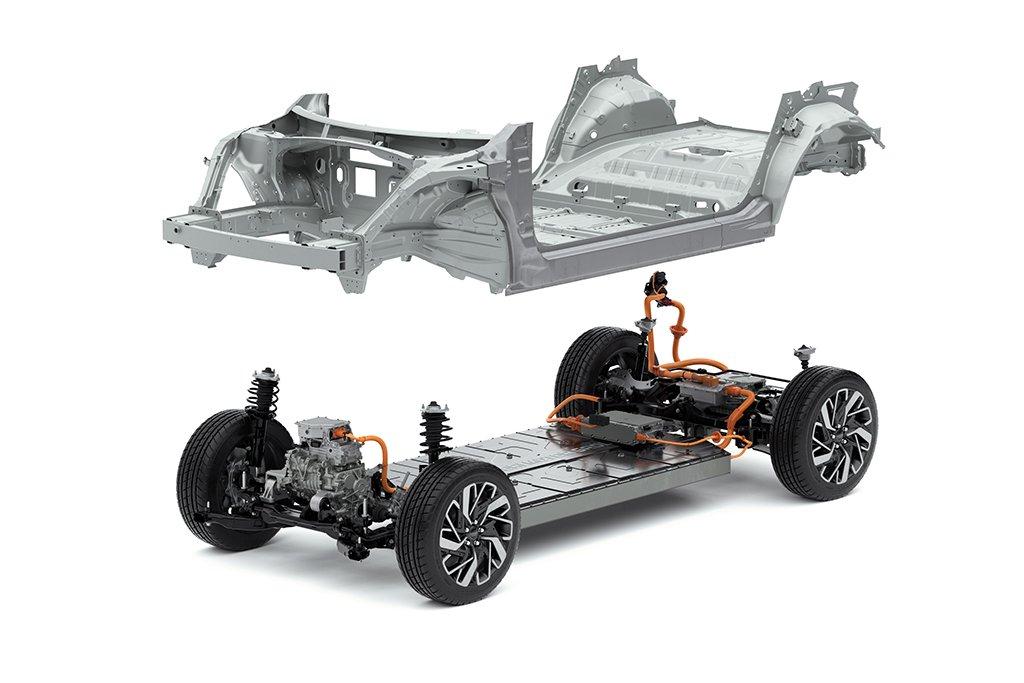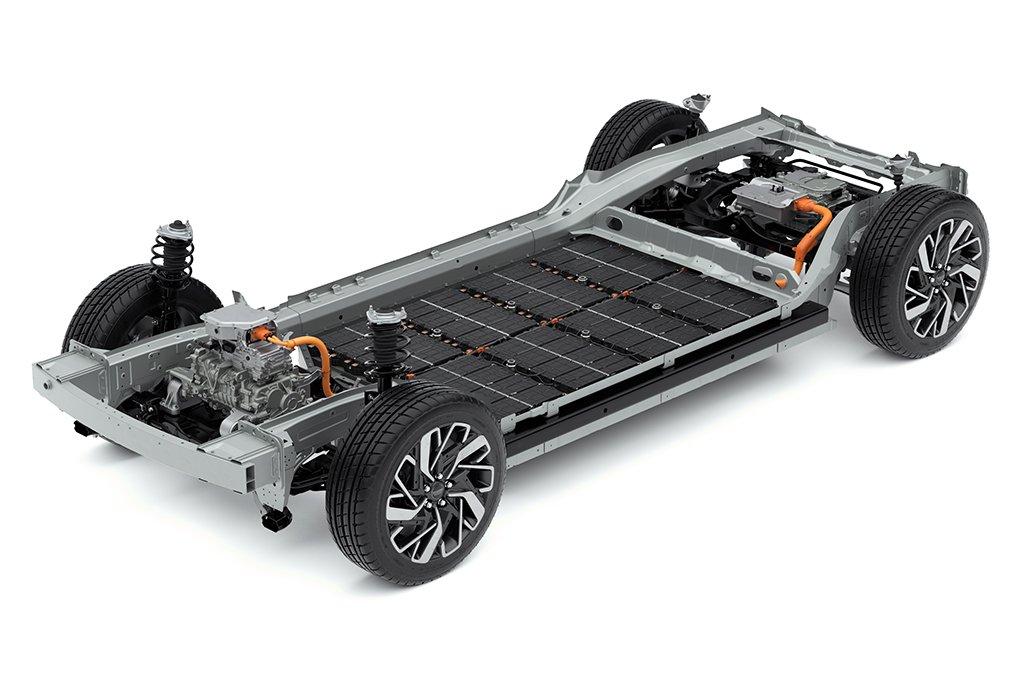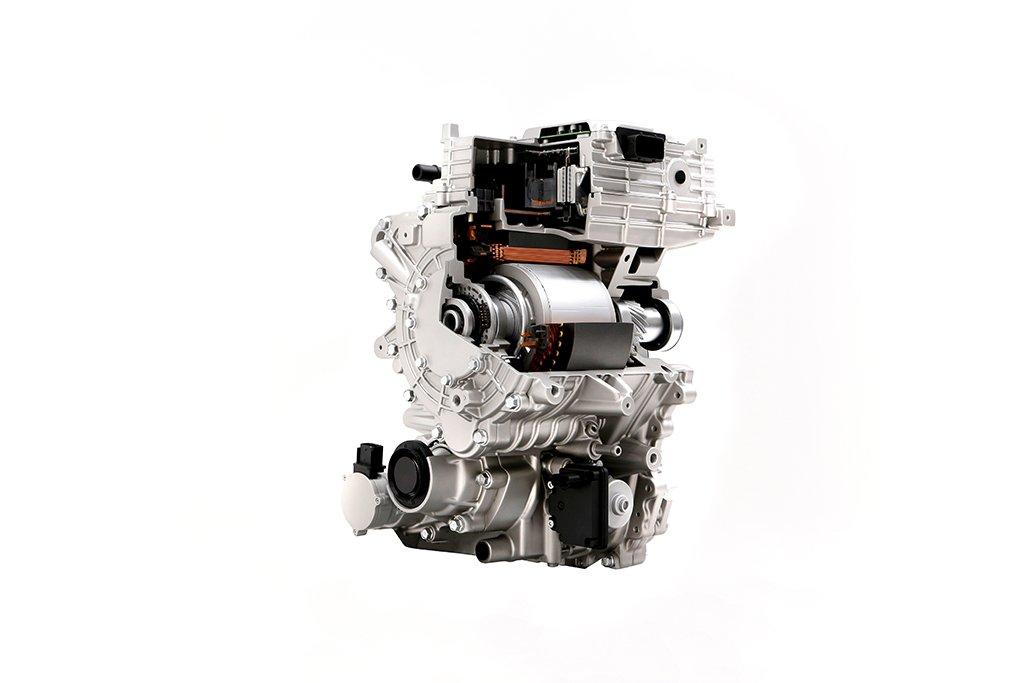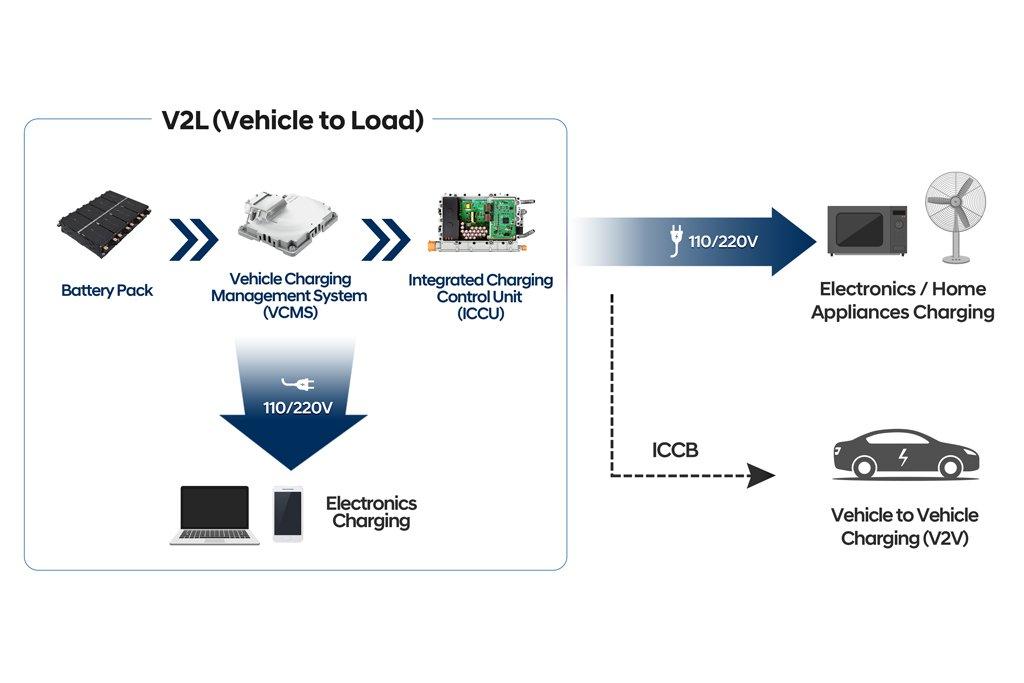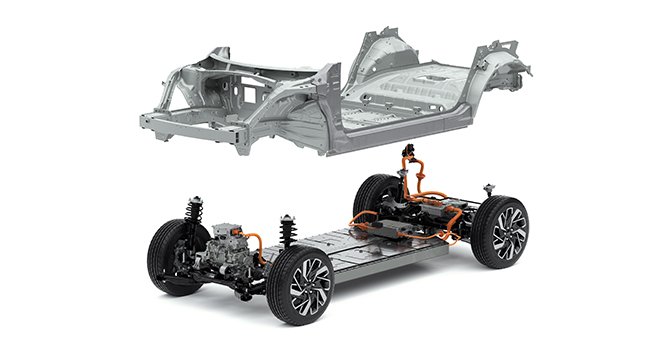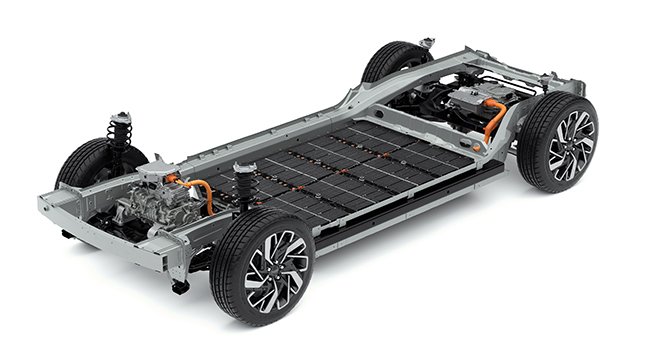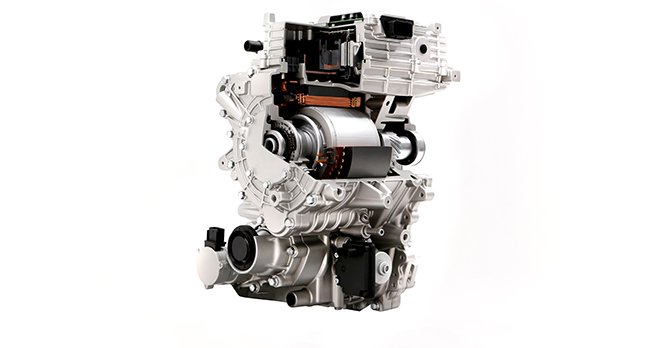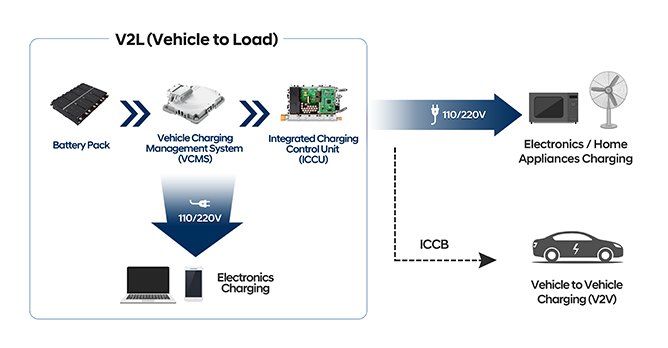Kia's first dedicated BEV will be based on Hyundai Motor Group's E-GMP
02 Dec 2020|1,202 views
Hyundai Motor Group unveiled its new Electric-Global Modular Platform, the group's first dedicated Battery Electric Vehicle (BEV) platform for its next generation BEV lineup, on 1 December 2020.
Starting from 2021, the E-GMP will serve as the basis for a range of new dedicated BEVs that will include cars from the group's Kia, Hyundai and Genesis brands. The first BEV based on E-GMP will be Hyundai's IONIQ 5, with Kia Motors Corporation's first dedicated BEV to be revealed in 2021.
As a dedicated platform for BEVs, engineered from the ground-up without any accommodation for internal combustion engines, plenty of benefits can be achieved. This includes increased development flexibility, powerful driving performance, increased driving range, strengthened safety features, as well as more interior space for occupants and luggage.
The E-GMP's modularisation and standardisation speeds up the development of new BEVs. Moreover, it also allows flexible development of products. It can be used across most vehicle segments, offering various sizes and types of vehicles such as sedans, SUVs and CUVs.
By locating the electric motors right where an internal combustion engine would have been, and mounting the battery modules low-down, the E-GMP is able to offer improved driving performance, safety and maximised space. An optimal weight distribution between the front and rear, a five-link rear suspension system as well as an integrated drive axle also enhances the handling stability and ride comfort.
Battery safety is ensured through a battery support structure made of ultra-high strength steel. The structure is also surrounded by hot-stamped steel components for additional rigidity. Energy-absorbent sections of the body and chassis with effective energy load paths allow collision energy to be absorbed efficiently.
Interior space is maximised through a long wheelbase with short front and rear overhangs, as well as a slim cockpit module. Without provisions for a transmission tunnel, the E-GMP creates a flat floor for the cabin, providing improved legroom and the possibility of varying front and rear seats arrangements.
The E-GMP is powered by a new compact Power Electric (PE) system that consists of a powerful motor, EV transmission and inverter, all integrated into a single module. The motor is controlled by the inverter power module, which adopts silicon carbide semiconductors, enhancing system efficiency by 2% to 3%.
These translates to the ability for a vehicle based on E-GMP to accelerate from 0-100km/h in less than 3.5 seconds, achieve a top speed of 260km/h, and also a maximum range of over 500km on a full charge.
The E-GMP will be primarily rear-wheel driven in order to offer excellent driving performance, while all-wheel drive configurations will also be offered. With the all-wheel drive system, an EV transmission disconnector is included, allowing the car to switch between two-wheel and all-wheel drive modes to enhance efficiency.
BEVs based on the E-GMP can be charged up to 80% in just 18 minutes, thanks to its support for 800V fast-charging. With its multi-charging system, the platform will support both 800V and 400V charging capability without the need for additional components.
Its newly developed Integrated Charging Control Unit (ICCU) enables a new vehicle-to-load (V2L) function, allowing the BEV to power other electric machineries anywhere. It can even be used to charge another EV.
The E-GMP will underpin Hyundai Motor Group's plans to introduce a total of 23 BEV models and sell more than one million BEVs worldwide by 2025.
Kia is also undergoing a transformation for the era of electrification. In September, it announced plans to increase the share of BEV sales volumes as a proportion of total sales to 20% by 2025. Kia has also recently published an early image of seven dedicated BEV models to be released sequentially by 2027.
Hyundai Motor Group unveiled its new Electric-Global Modular Platform, the group's first dedicated Battery Electric Vehicle (BEV) platform for its next generation BEV lineup, on 1 December 2020.
Starting from 2021, the E-GMP will serve as the basis for a range of new dedicated BEVs that will include cars from the group's Kia, Hyundai and Genesis brands. The first BEV based on E-GMP will be Hyundai's IONIQ 5, with Kia Motors Corporation's first dedicated BEV to be revealed in 2021.
As a dedicated platform for BEVs, engineered from the ground-up without any accommodation for internal combustion engines, plenty of benefits can be achieved. This includes increased development flexibility, powerful driving performance, increased driving range, strengthened safety features, as well as more interior space for occupants and luggage.
The E-GMP's modularisation and standardisation speeds up the development of new BEVs. Moreover, it also allows flexible development of products. It can be used across most vehicle segments, offering various sizes and types of vehicles such as sedans, SUVs and CUVs.
By locating the electric motors right where an internal combustion engine would have been, and mounting the battery modules low-down, the E-GMP is able to offer improved driving performance, safety and maximised space. An optimal weight distribution between the front and rear, a five-link rear suspension system as well as an integrated drive axle also enhances the handling stability and ride comfort.
Battery safety is ensured through a battery support structure made of ultra-high strength steel. The structure is also surrounded by hot-stamped steel components for additional rigidity. Energy-absorbent sections of the body and chassis with effective energy load paths allow collision energy to be absorbed efficiently.
Interior space is maximised through a long wheelbase with short front and rear overhangs, as well as a slim cockpit module. Without provisions for a transmission tunnel, the E-GMP creates a flat floor for the cabin, providing improved legroom and the possibility of varying front and rear seats arrangements.
The E-GMP is powered by a new compact Power Electric (PE) system that consists of a powerful motor, EV transmission and inverter, all integrated into a single module. The motor is controlled by the inverter power module, which adopts silicon carbide semiconductors, enhancing system efficiency by 2% to 3%.
These translates to the ability for a vehicle based on E-GMP to accelerate from 0-100km/h in less than 3.5 seconds, achieve a top speed of 260km/h, and also a maximum range of over 500km on a full charge.
The E-GMP will be primarily rear-wheel driven in order to offer excellent driving performance, while all-wheel drive configurations will also be offered. With the all-wheel drive system, an EV transmission disconnector is included, allowing the car to switch between two-wheel and all-wheel drive modes to enhance efficiency.
BEVs based on the E-GMP can be charged up to 80% in just 18 minutes, thanks to its support for 800V fast-charging. With its multi-charging system, the platform will support both 800V and 400V charging capability without the need for additional components.
Its newly developed Integrated Charging Control Unit (ICCU) enables a new vehicle-to-load (V2L) function, allowing the BEV to power other electric machineries anywhere. It can even be used to charge another EV.
The E-GMP will underpin Hyundai Motor Group's plans to introduce a total of 23 BEV models and sell more than one million BEVs worldwide by 2025.
Kia is also undergoing a transformation for the era of electrification. In September, it announced plans to increase the share of BEV sales volumes as a proportion of total sales to 20% by 2025. Kia has also recently published an early image of seven dedicated BEV models to be released sequentially by 2027.
Latest COE Prices
July 2025 | 2nd BIDDING
NEXT TENDER: 06 Aug 2025
CAT A$101,102
CAT B$119,101
CAT C$68,600
CAT E$120,000
View Full Results Thank You For Your Subscription.
